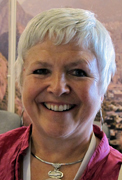Policy Bite : Integrated care – a role for family medicine
 espanol
espanol
When the WONCA team attended the World Health Assembly in May, we noticed two key phrases being used again and again - ‘universal health coverage’ and ‘people-centred integrated care’. This should be music to our ears, as we know that family medicine is the medical speciality which trains us to care for all aspects of our patients’ needs in a way that relates to their own ideas, concerns and expectations. But WHO does not mean this in the context of the individual alone – their plea is for integrated services, working across providers and different sectors so that comprehensive services for health education, prevention, acute and chronic care are made accessible to all. They propose four key mechanisms – better health literacy, which means that people have the knowledge, skills and resources to make the best use of their health and health care; better co-ordination of care; greater accountability for services to the needs of people, including poor and marginalised communities; and clearer prioritisation, including conscious consideration of how to make care equitable.
The definitions of both terms are already in WHO material, and need to be remembered by all those of us who advocate on behalf of family medicine, because our governments and ministries will probably be using these terms when they address health service reforms in our countries.
Universal coverage is defined as:
“Ensuring that all people have access to needed promotive, preventive, curative and rehabilitative health services, of sufficient quality to be effective, while also ensuring that the use of these services does not expose the user to financial hardship”.
Integrated care is:
"The management and delivery of health services such that people receive a continuum of health promotion, disease prevention, diagnosis, treatment, disease-management, rehabilitation and palliative care services, through the different levels and sites of care within the health system, and according to their needs throughout the life course.”
And people-centred means:
“An approach to care that consciously adopts individuals’, families’, and communities’ perspectives as participants in and beneficiaries of trusted health systems, that respond to their needs and preferences in humane and holistic ways. People-centered care also requires that people have the education and support they need to make decisions and participate in their own care. It is organized around the health needs and expectations of people rather than diseases.”
We need to show our decision makers that embedding family medicine as the main medical resource for communities is a key part of achieving these goals. WONCA is constantly looking for evidence and examples of how FM in different countries is improving the integration of care – please feel free to send us any evaluations you have that can help us to demonstrate this.
email to
amanda.howe@wonca.net